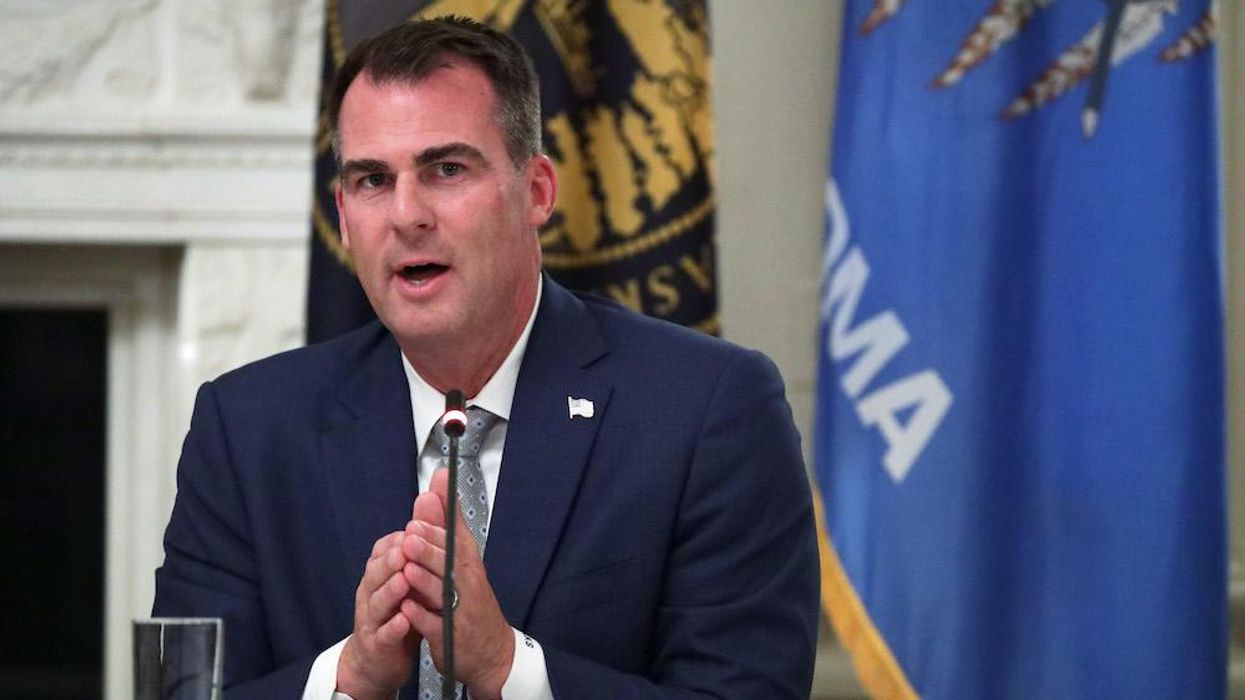
Photo by Alex Wong/Getty Images

Oklahoma Republican Gov. Kevin Stitt signed a bill earlier this month prohibiting his state's public-school teachers and administrators from teaching and implementing critical race theory that says American society is inherently racist and designed to perpetuate discrimination.
Now, because of his move to enact the law, NBC News said, Gov. Stitt has been booted from a state-backed commission set up to commemorate the 100th anniversary of the Tulsa Race Massacre of 1921, the single worst incident of racial violence in U.S. history.
Last week, Phil Armstrong, director of the 1921 Tulsa Race Massacre Centennial Commission, said he sent a letter to Stitt sharing the commission's disappointment that the governor not only signed the bill into law but also did not join the commission for a special meeting to discuss the new law.
The ban, according to its chief sponsor, state Rep. Kevin West (R), does not "stop the teaching of history or anything currently in our Oklahoma education standards, including curriculum that shows historical examples of racism or genocide," KJRH-TV reported. “This bill simply says that teachers can't force a student to answer that they are inherently racist or sexist or that they must feel personally responsible for things perpetrated in the past by people of a similar race or gender."
The bill's proponents repeatedly said the bill would in no way preclude teaching about the Tulsa massacre.
But according to Armstrong and the rest of the commission, the new law will impact teaching on the horrific event by blocking any "exploration of the underlying causative factors" and therefore "chills the ability of educators to teach students."
Armstrong and his team also had a real problem with Stitt saying a ban on critical race theory was justified because the state's policies should bring Oklahomans together, "not rip us apart." Stitt argued that the new law "encourages honest and tough conversations" by making Martin Luther King Jr.'s concepts part of state code.
"How does this law bring us together and codify the concepts of Dr. Martin Luther King Jr.?" Armstrong asked. "How do you reconcile your membership on the Centennial Commission with your support of a law that is fundamentally contrary to the mission of reconciliation and restoration?"
The commission's letter concluded by saying that Stitt's signing of the bill shows that he doesn't really want to be a part of the group and told the governor that if he didn't respond, they would consider that "as a further disavowal of the stated goals of the Centennial Commission and an official resignation from its membership."
THE OFFICIAL RESPONSE TO @GovStitt REGARDING #HB1775pic.twitter.com/IBOGd0RqGw— Greenwood Rising (@Greenwood Rising) 1620768868
Apparently, Stitt didn't respond, because the commission said in a new statement that it "agreed through consensus to part ways with Governor Stitt," NBC News reported.
The group added that that though it "is disheartened to part ways with Governor Stitt, we are thankful for the things accomplished together," adding, "No elected officials, nor representatives of elected officials, were involved in this decision," according to NBC News.
The governor's office told the outlet that Stitt didn't know about his ouster until the commission issued its statement.
Stitt spokeswoman Carly Atchison said the governor's role "has been purely ceremonial and he had not been invited to attend a meeting until this week."